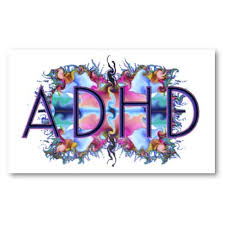Distraction, impulsivity, and organizational issues are some of the concerns that are frequently used to describe Attention Deficit Hyperactivity Disorder (ADHD). This viewpoint, nevertheless, may obscure the special abilities and imaginative potential of people with ADHD. By focusing on utilizing the inherent characteristics of ADHD rather than just treating its symptoms, we can develop coping mechanisms that not only reduce distractions but also help us succeed in many facets of life.
Comprehending ADHD
The neurodevelopmental disorder known as ADHD is typified by impulsive, hyperactive, and inattentive behaviors. While many people with ADHD are known for their inventiveness, spontaneity, and high energy levels, the symptoms can also present serious challenges in social, professional, and academic contexts. For efficient management and general success, it is essential to identify and capitalize on these abilities.
1. Adopt Hyperfocus
The phenomena of hyperfocus, in which people get so absorbed in a task that they lose track of time, is one of the paradoxical characteristics of ADHD. It is possible to use this concentrated focus to produce amazing outcomes. To make the most of hyperfocus:
Determine Your Passion Projects: Pick pursuits that truly inspire you. Being passionate makes it simpler to become hyperfocused.
Establish Specific Objectives: Divide work into smaller, more manageable activities with clear goals. This framework facilitates directing hyperfocus toward beneficial results.
Establish a Favorable Environment: Reduce the amount of outside distractions in your office. Your ability to hyperfocus on tasks can be improved in a calm, well-organized environment.
2. Put Structured Routines in Place
For people with ADHD, routines offer a framework that can be quite helpful. They provide consistency and aid in efficient time management. To create a pattern:
Begin Small: Establish easy daily habits. Start with a morning routine, for example, that consists of the same series of tasks every day.
Make Use of Visual Aids Apps, planners, and visual schedules can help you stay on track by acting as reminders. Anxiety can be reduced and concentration enhanced by seeing work organized.
Included Breaks: Include regular breaks to keep your energy levels up and avoid burnout. Particularly useful methods include the Pomodoro Technique, which involves working in concentrated bursts interspersed with brief rests.
3. Clearly Define Your Boundaries
Both external and internal factors can cause distraction. This can be lessened by establishing clear boundaries:
Assign Particular Work Areas: Establish discrete areas for both work and leisure. Your brain may be able to switch modes more efficiently with this physical isolation.
Limit Concentrate on a single task at a time when multitasking. Despite its apparent benefits, multitasking frequently results in less productivity and more distraction.
Utilize Technology Wisely: Use technology to help you keep organized, but be aware of how distracting it may be. Turn off distracting notifications and use programs that help you stay focused, such as timers or task management software.
4. Make Use of Your Creativity
People with ADHD frequently have unconventional thinking, which may be quite helpful for solving problems and coming up with new ideas. To capture this inventiveness:
Participate in brainstorming sessions: Give yourself permission to openly explore concepts without self-censorship. This may result in creative fixes and fresh methods for dealing with problems.
Include Movement: Engaging in physical activity can inspire original thought. Try doing something physical that lets your thoughts wander, like brainstorming while walking.
Keep a Journal of Your Creativity: As you have ideas, write them down. This might act as a source of inspiration for upcoming projects in addition to capturing your ideas.
5. Develop Mindfulness
People with ADHD may benefit from mindfulness exercises by becoming more conscious of their thoughts and emotions, which will improve their ability to focus and control their emotions. Think about using these tactics:
Meditation: Consistent meditation practice can decrease impulsivity and increase attention span. As you get more comfortable, progressively extend the time each day from a few minutes at first.
Mindful Breathing: When you’re distracted, ground yourself by doing deep breathing exercises. Centering your mind can be achieved by focusing on your breathing for a few minutes.
Awareness of the Body: Take part in exercises that highlight the relationship between the body and mind, such as yoga or tai chi. These techniques can improve focus and encourage relaxation.
6. Look for Assistance and Responsibility
Effective management of ADHD may be greatly aided by having a support network. Be in the company of people who can support you and who are aware of your difficulties. The following are some strategies to promote accountability:
Locate an Accountability Partner: Discuss your objectives with a person who can assist you in staying on course. Frequent check-ins might help you maintain focus on your goals.
Participate in Support Groups: Making connections with people who have ADHD might yield insightful information and helpful coping mechanisms. It is a place where people may exchange experiences and gain knowledge from one another.
Think About Expert Advice: Working with an ADHD-focused coach or therapist can provide you with specialized tools and tactics to help you achieve.
In conclusion
To effectively use ADHD for success, one must change their perspective from seeing it only as a disorder to appreciating its potential and capabilities. People with ADHD can successfully manage their difficulties by embracing hyperfocus, putting regular routines into place, establishing clear boundaries, using creativity, practicing mindfulness, and asking for help. Trial and error may be a part of the path, but it is totally feasible to thrive beyond distraction if you have the correct tactics and endurance. In the end, the secret is realizing that ADHD is a distinct perspective on the world that can result in remarkable accomplishments, rather than merely a collection of difficulties.


